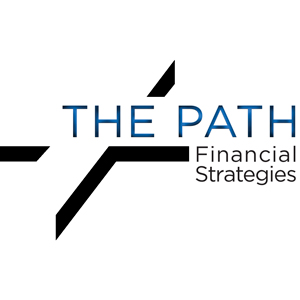People make common financial mistakes every day – bad decisions that cost them money. Do any of these blunders apply to you?
1. Not paying off credit card balances.
Sometimes people have a credit card balance that seems small, so they continue making payments though they could pay off the balance. This is especially unwise if, at the same time, they have money sitting in their savings account making barely any interest. For example: If you have a credit card balance of $1,000 with a 12 percent interest rate, the interest you pay equals $120 per year. Your $3,000 savings account with a .025 percent interest, however, is earning only seventy-five cents. Using funds from savings to pay off the credit card will actually save more many than you will earn in savings – a wise move that really adds up if you pay off multiple cards. But take note, this situation applies only when there are sufficient assets to pay off the balance while continuing your savings account, and its overall impact reduces if you keep charging to the card.
2. Not taking advantage of matching plans.
If your employer offers a retirement plan with matching funds and you are not a participant, in effect you are leaving an immediate raise unclaimed. You may think: I cannot afford to put anything in the plan right now. However, due to pre-tax implications, a 3 percent contribution to a retirement plan may affect your take-home pay only slightly. Even if you start with a small contribution, you reap the benefit of multiplying your income. Once you start seeing results, you may become even more incentivized to increase your contribution over time.
3. Leaving assets at previous employers.
If you change jobs, be sure to take all of your retirement assets with you. Sometimes these assets can be overlooked or forgotten because you are busy moving, learning the new job, or your former company was bought out in the past. Assets left with a company are basically abandoned, for employers are not required to send out quarterly statements. It can become a very confusing puzzle as to who has the assets, where they are, and how to get them. In addition, sometimes if the account balance is under a certain amount and you don’t move the money, a distribution of the account later on will show up in your mailbox unexpectedly and you may end up paying taxes and penalties. The smarter way is to keep track of your assets – no matter the size – and then roll them into your new employer’s retirement plan or a bundled IRA.
4. Lending to family members.
If you agree to be the bank for a family member, be ready to possibly dismiss the money as a gift. If you are not mentally and emotionally willing to give the money to a family member, don’t lend money! The same applies to co-signed loans. Unpaid debts among family members can cause unnecessary damage to finances, as well as relationships.
5. Focusing on taxes in a vacuum.
How you handle your taxes should depend on your overall financial goals, not just trying to reduce your taxes in a one-year time period. Some tax strategies enlisted for short-term gain may have long-term consequences on your financial goals. Don’t get paralyzed making financial decisions by focusing too much on tax consequences, for that is only one piece of the puzzle. Approach your finances with a holistic view over an extended period of time, and have an open dialogue with your CPA and financial adviser to ensure that your end goal is kept in mind.
6. Limiting life insurance protection to an employer-sponsored plan.
The average worker today stays at a job around 4.4 years before moving on to the next opportunity, according to the Bureau of Labor Statistics. Since employees don’t control their benefits, this work transiency can equate to losses in benefits. This scenario was demonstrated during the recession of 2008, when so many employees lost their jobs as well as their employer-sponsored life insurance. It matters greatly that you protect your benefits by also owning private plans, especially when it comes to life insurance. Your premium increases as you age, and your health is the deciding factor as to whether you qualify for the contract. Securing a separate policy that you own and control from a young age can considerably impact your financial picture as you age. More than ever, life insurance is needed for your entire life. Assets saved for retirement income become burdened when no life insurance is in place. Assets get delegated to legacy or survivor income replacement, and then aren’t available for current consumption. This may be avoided through proper life insurance planning. Regardless of your employment status, age, or health, a life insurance plan that is yours can continue to support your financial goals.
Simple attitude shifts like these can significantly impact your bottom line. Remembering these tips may help steer you toward a better outcome: inclusion on the list of people who make smart financial moves.




